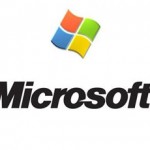 Mountain View, California — Search engine titan Google Inc. prides itself on setting trends, on Tuesday announced it has rolled out two new updates to its main search engine to improve the ease of searching, intended to produce much better results for complicated searches. The new technology that Google now employs will allow the search engine to “better identify associations and concepts related to a query, improving the list of related search terms Google displays along with its results,” Google’s Ori Allon and Ken Wilder announced in an official blog post.
Mountain View, California — Search engine titan Google Inc. prides itself on setting trends, on Tuesday announced it has rolled out two new updates to its main search engine to improve the ease of searching, intended to produce much better results for complicated searches. The new technology that Google now employs will allow the search engine to “better identify associations and concepts related to a query, improving the list of related search terms Google displays along with its results,” Google’s Ori Allon and Ken Wilder announced in an official blog post.
After months of testing, the first new technology that has been installed to enhance the suggested related search information that is displayed at the bottom of a search page.
The new application broadens the scale of related searches to related concepts within the search term. The expanded snippets will contain three or four lines from Web sites instead of the usual one or two lines.
“For example, if you search for ‘principles of physics,’ our algorithms understand that ‘angular momentum,’ ‘special relativity,’ ‘big bang’ and ‘quantum mechanic’ are related terms that could help you find what you need,” wrote Ori Allon, technical lead of Google’s Search Quality team, and Ken Wilder, team engineer at the company’s Snippets project.
The latest related search offerings are being rolled out and are now available in 37 languages, including Russian and Italian.
The company has also refined the blurbs that appear below search results.
The switch is intended to give Google’s audience a better sense of what information a Web site has even before users click on the link. It is something lesser known search engines already have been trying to do, either by displaying longer descriptions or providing capsule snapshots of the Web pages that show up in their results.
The technology functions by examining the content of Web pages that appear related to the query and determining from those pages the “entities” such as people, places, or concepts that are related to the query. Sometimes it would then offer suggested new searches in a “search refinements” section that appears at the bottom or top of the list of results, said Allon, in an interview. The processing occurs during the fraction of a second Google takes to return search results.
“We try to understand what is the meaning of the query, the context of the query,” Allon said. “We can do a better job of generating refinements that let users hopefully get to results they want.”
This grouping method was popularized years ago by IAC/InterActiveCorp.’s Ask.com and has since been duplicated by other search engines. Google’s upgrade was conceived by Allon, who joined Google in 2006 after selling a search startup called Orion to the Mountain View-based company.
Over the years, Google executives have acknowledged that semantic search technology will be an important component of search engines in the future.
“At present, Google is really good with keywords and that is a limitation we think the search engine should be able to overcome with time,” Google Vice President of Search Products & User Experience Marissa Mayer said in an interview with IDG News Service in October 2007. “People should be able to ask questions and we should understand their meaning, or they should be able to talk about things at a conceptual level. We see a lot of concept-based questions — not about what words will appear on the page but more like ‘what is this about?’. A lot of people will turn to things like the semantic Web as a possible answer to that.”
Since 2007, Google has been in the midst of a campaign to retool and update its flagship search engine product. The company has pursued such areas as multimedia and multi-source ‘Universal search’ as well as ideas such as cross-language search.
There is an entire army of Google rivals that are occupied in developing and perfecting semantic search engines, betting that they will be able to deliver on the promise of this technology: to let users type in queries in natural language and have the search engine understand their meaning and intent.


